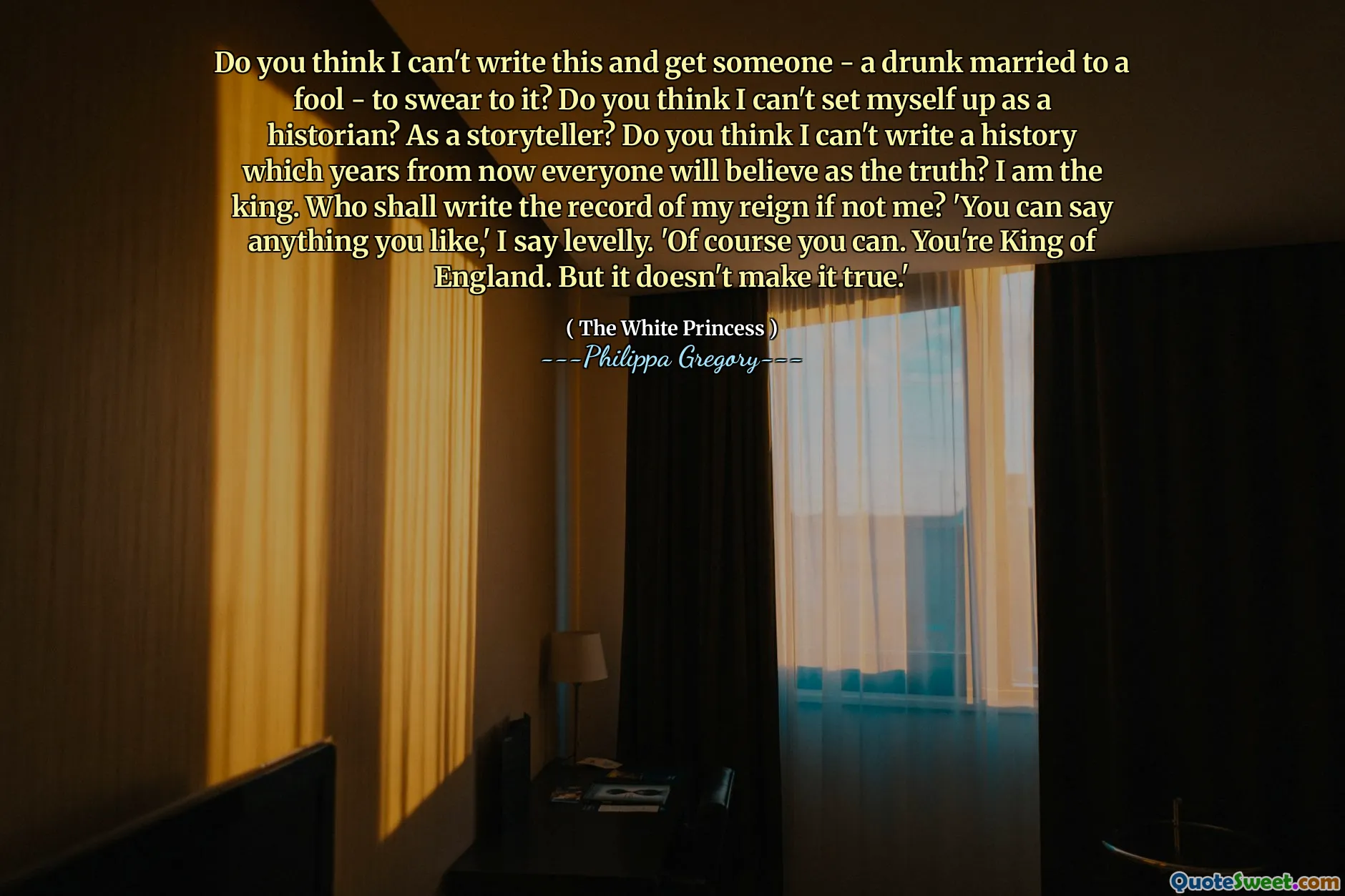
Do you think I can't write this and get someone - a drunk married to a fool - to swear to it? Do you think I can't set myself up as a historian? As a storyteller? Do you think I can't write a history which years from now everyone will believe as the truth? I am the king. Who shall write the record of my reign if not me? 'You can say anything you like,' I say levelly. 'Of course you can. You're King of England. But it doesn't make it true.'
[Marking the essence of power and truth, this quote reflects on the fragile boundary between authority and authenticity. The speaker, presumably a king, asserts that his power grants him the ability to shape narratives and historical records. His confidence suggests an understanding that history is often written by those who hold the pen—whether through honest recounting or deliberate manipulation. It casts a light on the nature of sovereignty, where the authority to define reality can overshadow objective truth. This leads to profound questions: Is truth ultimately what is written, or what is factual? When those in power control the narrative, history becomes a tool that can serve personal or political agendas, blurring the lines between fact and fiction.
The rhetoric used highlights the potential dangers of unrestrained authority in shaping perceptions and memory. The king's admission that he can forge narratives, despite acknowledging that doing so does not inevitably make it true, echoes contemporary discussions about media, propaganda, and the responsible use of influence. It underscores the importance of skepticism towards authoritative accounts, urging readers to critically evaluate who writes history and why.
The quote also implicitly warns about the consequences of unchecked power—the distortion of reality that can influence generations. It provokes reflection on the value of integrity in storytelling and historical record-keeping and reminds us that the power to narrate is tantamount to the power to influence perceptions of truth itself.
In literature and history, these themes still resonate, revealing the enduring relevance of understanding who controls the narrative and how perceived authority impacts collective memory.
---Philippa Gregory---







